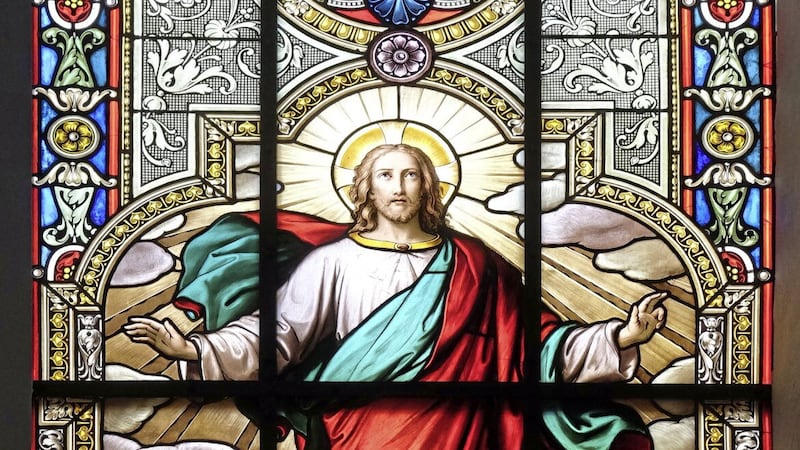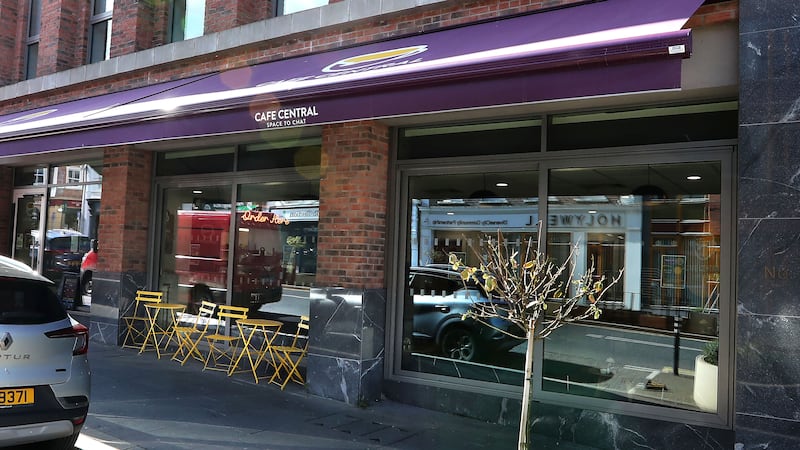Traditional understanding has it that at the Ascension, Christ ascended to the right hand of God the Father in heaven. And this in turn has sometimes been understood to mean that Christ is no longer on earth, but somehow has gone off to a better place.
That certainly seems to have been what some of the early disciples thought, as the description of the event at the beginning of the Acts of the Apostles clearly suggests.
After the Ascension, they kept looking up into the sky, as if trying to catch a final glimpse of Christ. But they were then told that Jesus hadn't disappeared for good, but would return "in the same way as you saw him go into heaven" (Acts 1:11).
Ever since, the Christian Church has lived from the belief not that Jesus is absent from our life, but that he is closer to our lives than we are to ourselves. The Church is the body of Christ, so Christ is with us here and now.
What the Feast of the Ascension does stress in particular, however, is that the Christ who is now present with us, is present as one who has gone beyond – and in that sense 'ascended' beyond – what in the Letter to the Ephesians (1:21) is referred to as "every rule and authority, power and dominion".
What these 'rules, authorities, powers and dominions' are, or at least include, is not too difficult to guess: they are the forces that oppress people, forces that seem to exercise great power for ill and harm over human life.
They're things like the all-encompassing economic forces that seem to hold sway in our world, often for the worse, or political ideologies that take away people's freedom, or other violent forces that diminish or destroy life altogether.
And such demonic forces can be found, as is hard to dispute, in each individual, as well as – on a larger scale – in interest groups of various kinds or even, on occasion, in entire nations when they fall under the spell of these forces.
What the Feast of the Ascension is, I think, seeking to make clear, is that Christ has defeated all these superhuman and ultimately inhuman powers, and redeemed humanity as being valuable and indestructible in God's eyes.
In heaven, God isn't surrounded, in other words, by the world's self-promoting and self-serving powerful interest groups, but has chosen to be surrounded by our humanity, in the person of his Son, Jesus Christ.
What this implies, is that we can now try to live out here on earth this new reality of what our redeemed humanity means. We don't have to collaborate with the dark, self-assertive forces within ourselves or in the world at large in order to survive.
Hence, we can celebrate, liturgically and in everyday life, the fact of what we now are: the body of Christ, redeemed essentially from all that is destructive of our humanity, and already sharing in the reality of God's own life in heaven.
And in receiving Holy Communion, in saying 'Amen' as we receive the host, we are saying 'Amen' to, or we are affirming, the reality of what we truly are, namely members of the body of Christ.
It's not for nothing, either, surely, that the truth of the Ascension is connected with a movement that is literally uplifting. The triumph of Christian faith has to do with the triumph of God's victory over everything that drags life down and destroys it.
The Bible is full of language of God raising up the poor and the weak and the oppressed, whereas the language of the forces opposed to God is always directed downwards, from the Fall of Lucifer to the Fall of our first parents.
God's spirit is never heavy-handed or oppressive; it is, literally, gracious and graceful and light. It's as if, with God, the forces of oppression and depression can be overcome. And it seems no accident that when people wish to celebrate, they instinctively, say, release balloons or set off fireworks into the heavens, as if to mark symbolically the soaring victory of God's greatness and goodness and beauty over all the forces in the world that would seek to deny or to destroy it.
So, the Feast of the Ascension is not primarily concerned with the final act in the drama of Jesus' earthly life. It is, rather, the affirmation of the reality of God's faithful love for the world, and his desire for us to share ultimately in the freedom and goodness of God in heaven for ever.
Martin Henry, former lecturer in theology at St Patrick's College, Maynooth, is a priest of the diocese of Down and Connor








